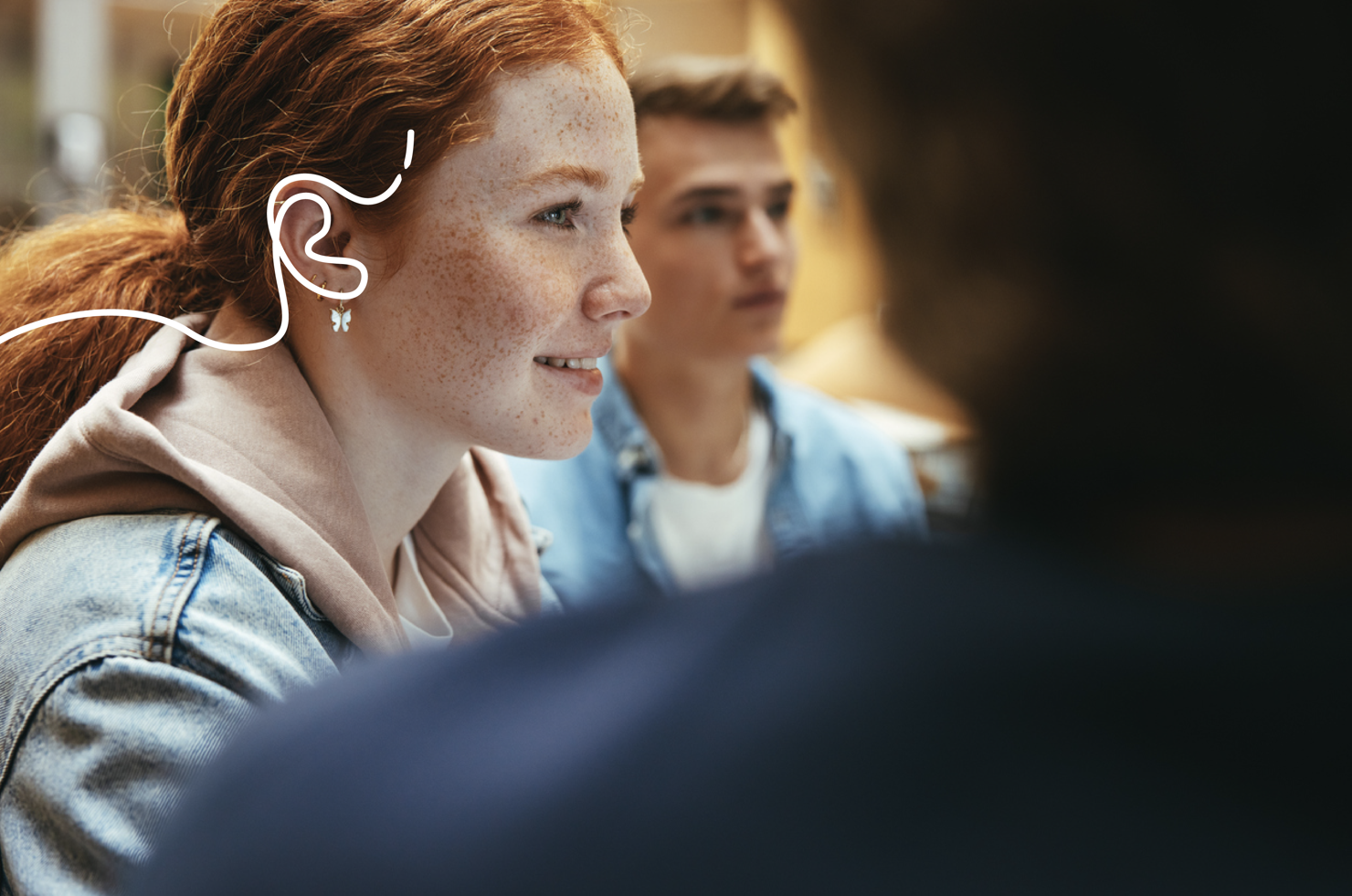
What Are The Signs Of Hearing Loss in Kids?
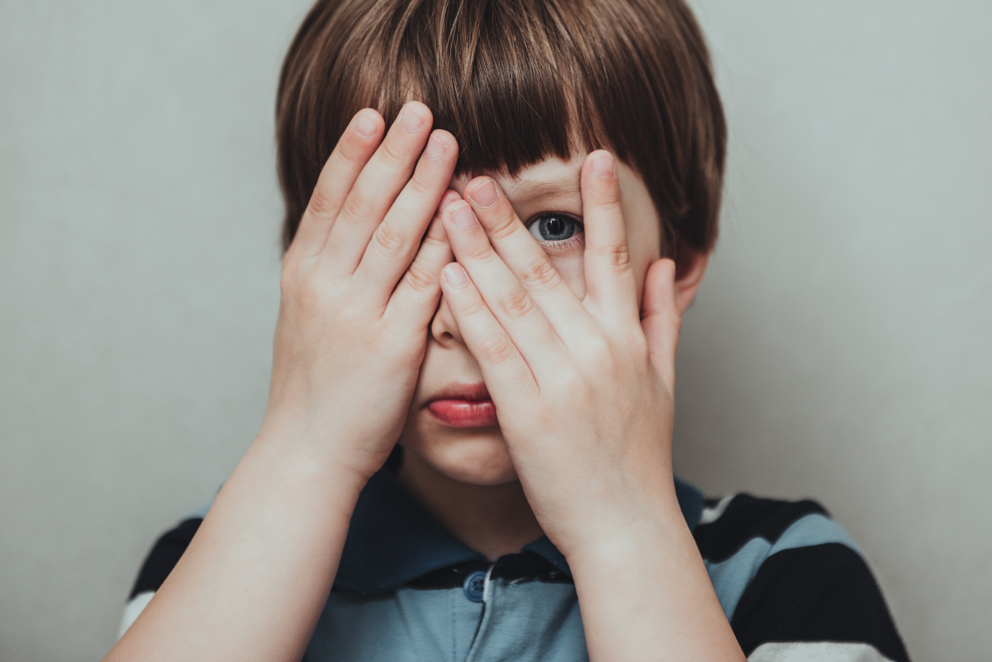
Hearing loss in children is more common than most people realize. Approximately 4 in every 1,000 children are born with hearing loss and, by age 12, about 20% of children have some degree of hearing loss. Acquired and sudden hearing loss in kids can be the result of head trauma, illness, exposure to loud noises, or certain medical treatments.
Keep in mind that all the Loud music that kids and teens listen to could be damaging their hearing. Recent studies show that a billion young people could have hearing loss from listening to loud music, especially through headphones and AirPods.
It’s important for parents and caretakers to watch for signs of hearing loss in children. Even mild hearing loss can interfere with a child’s speech and language skills, and cause learning, social, and/or behavioral difficulties.
-
- Not get startled or upset by sudden loud noises
- Not recognize their parents’ voices by 3 months
- Not turn their head toward a sound by 6 months
- Not imitate sounds or simple words by 12 months
- Stop babbling and experimenting with making sounds
- Not react to voices, even when being held
-
- Delayed language skills
- Abnormal speech
- Insistence on listening to television or music at a high volume
- Learning difficulties
- Not paying attention to conversations
- Not responding when someone calls their name
- Trouble hearing over background noise
-
- Does not follow simple commands, such as “get your shoes,” or understand simple directions
- Says "What?" or “Huh?” often
- Is easily frustrated or experiences communication breakdowns
- Is falling behind with speech and communication skills
- Can’t understand what you are saying unless they’re looking directly at you
- Can’t identify where sounds are coming from
- Moves one ear forward when listening, or complains that they can only hear out of their "good ear”
- Is exhausted at the end of school from concentrating to understand speech
- Speaks very loudly
- Shows signs of behavioral problems or social difficulties
- Experiences problems keeping up at school or falling grades
Signs of Hearing Loss in Teens
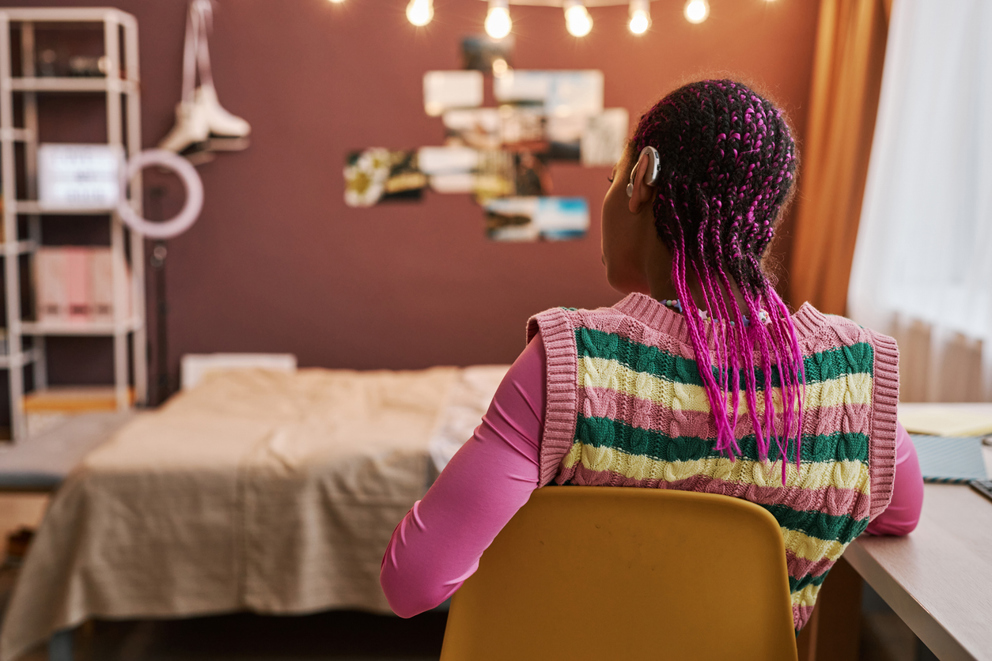
- Hears muffled speech and other sounds
- Has trouble hearing high-pitched sounds (e.g., birds, doorbell, telephone, alarm clock)
- Has trouble understanding conversations when you’re in a noisy place, like a restaurant
- Has trouble understanding conversations over the phone
- Has trouble hearing speech consonants, such as telling the difference between s and f, p and t, or sh and th in speech)
- Asks others to speak more slowly, clearly, or loudly
- Says “What?” or “Huh?” frequently, and asks people to repeat what they said
- Turns up the volume of the television or radio
- Experiences ringing in their ears
- Shows hypersensitivity to certain sounds, meaning those sounds are very bothersome or painful
What Causes Hearing Loss in Children?
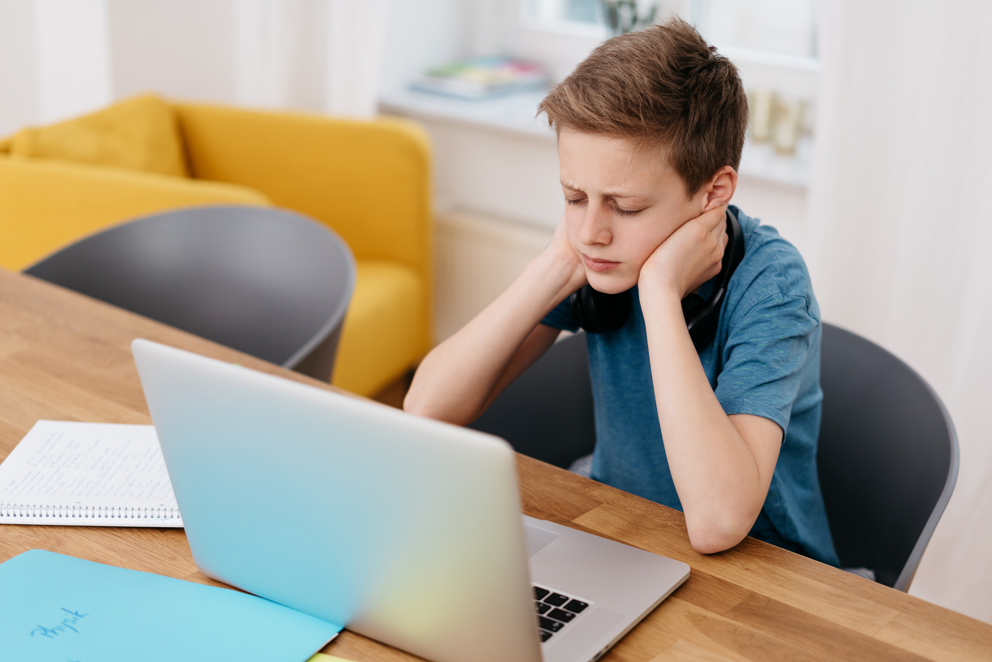
There are various possible causes of hearing loss in children. Some children experience temporary hearing loss due to Otitis Media, a middle ear infection which can occur in one or both ears. Otitis Media, the most common cause of hearing loss among children, can be painful. It must be treated quickly and correctly, so if you suspect your child has a hearing loss – or if they’re complaining about ear pain – see an audiologist promptly.
Earwax is another possible cause of hearing loss. Usually, earwax serves a useful purpose – keeping dust, dirt, and other materials out of the ear – and doesn’t harm your child or impact their hearing. If, however, your child has excessive earwax that’s negatively impacting their hearing, go to your family doctor, an audiologist, or ENT for help. Don’t try to remove earwax yourself, and never put cotton buds or other objects into your child’s ears in an attempt to clean them because you could rupture their eardrum and cause permanent hearing damage.
Loud music has been identified as a factor for hearing loss in teens and children. Researchers found that when people frequently listen to music on personal headphones and at entertainment venues at unsafe volumes, they’re risking their future ear health. Factors that can negatively impact people’s hearing include the sound level, as well as the duration and frequency of the sound.
In fact, an estimated 18-29% of young people worldwide are regularly listening to excessively loud noises on headphones, and just under half are being exposed to unsafe volume levels at concert venues.
In some cases, hearing loss in children can be caused by genetic factors, illnesses and medication.
If your child or teen has any signs of hearing loss, get them tested by a qualified hearing care provider immediately.
Types of Hearing Loss in Kids & Teens
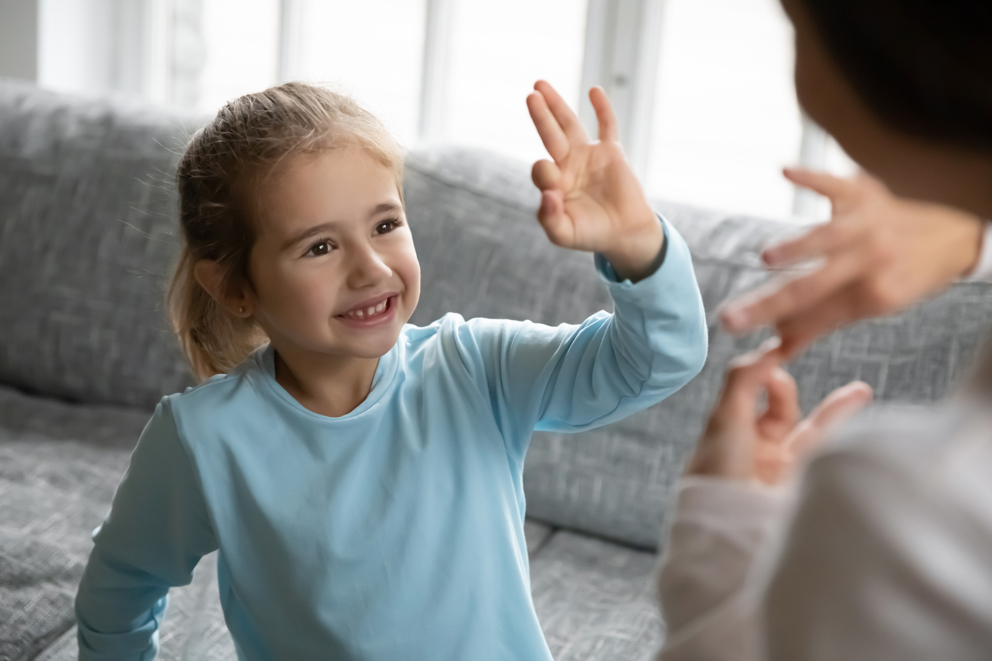
There are various types of hearing loss in children, including the following:
- Conductive hearing loss is caused by something that blocks sound from traveling to the inner ear. Ear infections, ear wax buildup, and problems with the tiny bones of the middle ear are common causes of conductive hearing loss.
- Sensorineural hearing loss (SNHL) happens when the inner ear (cochlea) or hearing nerves are damaged. SNHL may run in families, be part of a genetic condition, or be caused by certain infections or medicines that damage the inner ear or nerves.
- Mixed hearing loss is when someone has both conductive and sensorineural hearing loss.
- Central hearing loss happens when there is damage to the part of the brain that controls hearing.
- Auditory processing disorder (APD), which affects about 3%–5% of school-aged children, is when the child’s ears and brain don’t work well together. Kids with APD have normal hearing but something interferes with the way the brain recognizes and makes sense of sounds, particularly speech.
What To Do If You Think Your Child Has Hearing Loss
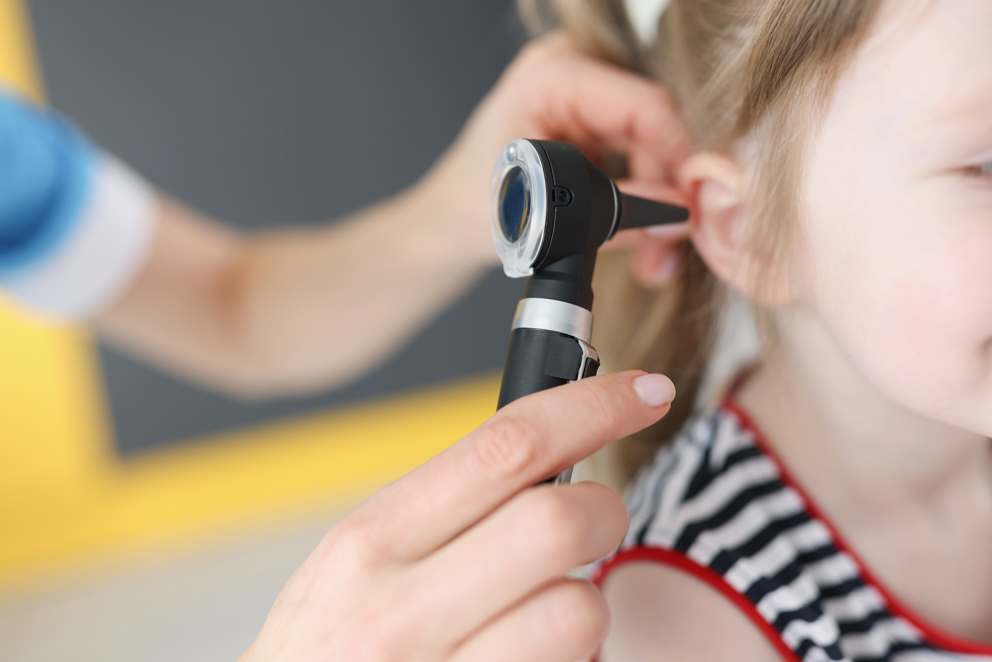
If your child is showing signs of hearing loss, get an evaluation as soon as possible, ideally with an audiologist that specializes in treating children. A hearing test is the best way to diagnose hearing loss and its severity. Using hearing tests, 80 to 90% of hearing loss can be detected, and children can begin early intervention with the best possible outcomes for language development.
Treatment options for hearing loss will depend on the diagnosis, but could include hearing aids, cochlear implants, surgery, and hearing rehabilitation. Since even mild hearing loss can cause problems with speech, language, learning, and social skills, babies and toddlers with hearing impairment should be enrolled in early intervention programs. School-age children may qualify for special services, therapy, and rehabilitation from their schools. Getting this help early is the best way to prevent speech and language delays and improve a child’s development (and confidence!).
It’s important to address (and resolve) any possible issues promptly, as an untreated hearing loss can dramatically affect your child's ability to learn, socialize and communicate.
What Are The Treatment Options For Hearing Loss in Kids?

No single treatment is the correct answer for every child or family. Treatment depends on the type of hearing loss, its cause, and its severity.
Children with hearing loss should be seen by a team of specialists that may include an audiologist, ENT doctor, speech-language therapist, and education specialist. Good intervention plans will include monitoring, therapy, and follow-up to help each child thrive.
Some hearing problems are medically or surgically correctable. These treatments typically include:
- Medication. Antibiotics or antifungal creams are often used to treat hearing loss caused by recurring ear infections.
- Ear tubes. Small tubes are surgically placed in the child’s eardrum to drain fluid out of the middle ear and reduce the risk of future ear infections.
- Surgery. A clinician may recommend surgery to treat hearing loss caused by head trauma or a malformed ear or ear canal.
Other hearing problems are treated with hearing devices and/or speech and language therapy. The most common types of treatments include:
- Hearing aids are devices that are inserted into the ear to make sounds louder and clearer. There are many hearing aid options, styles, manufacturers, and price points. An audiologist will help you choose hearing aids based on your child's needs, such as the severity of their hearing loss, as well as your family’s budget.
- Cochlear implants may help children with severe hearing loss when a hearing aid can’t. This surgically placed device bypasses the parts of the ear that aren’t working properly and stimulates the hearing nerve. With therapy and rehabilitation, kids with a cochlear implant can learn to hear and speak well.
- Hearing rehabilitation helps children with hearing loss learn how to listen and communicate. This may include auditory-verbal therapy (AVT), speech therapy, lip reading, or learning American Sign Language (ASL). Your audiologist will work with your family to find the best way for your child to communicate.
Show Kids How Cool Hearing Aids Are

Many kids today are obsessed with technology, including smartphones, iPads, video games, and high-tech earphones. Even babies and toddlers are mesmerized watching shows on a tablet or smartphone. Now, the latest technologies are helping to make hearing aids and accessories even cooler, which will help more children adopt and accept them.
School-age kids and teens will enjoy linking their hearing aids to an app that allows them to easily adjust the volume and settings. That way, they can block out distracting background noise in loud environments, like restaurants or school assemblies. They can also link their hearing aids directly to their cell phone to enhance their hearing while listening to music or while gaming. Innovative tech developments have improved audiology, allowing people with hearing loss to use hearing aids with Bluetooth technology, rechargeable batteries, Artificial Intelligence (AI), and other appealing features and functions.
Some young celebrities and social media influencers are being open and honest about their hearing loss – and even posting TikToks and other social media content about their hearing aids. Encourage your kids and teens to follow influencers with healthy attitudes about their hearing loss – and who embrace their hearing aids as part of their identity.
Young celebrities with hearing loss include football player Derrick Coleman, Jr., Canadian musician Grimes, model and actor Nyle DiMarco, and actress Millie Bobby Brown. Social media influencers – like former professional motocross racer Ashley Fiolek, “The Walking Dead” actress Lauren Ridloff, and TikTok star Chrissy Marshall – are helping to raise awareness – and “coolness” – of hearing loss and hearing aids, which may help make kids feel less alone after their diagnosis.
Auditdata Solutions
Raising Awareness, Improving Lives
As a leading provider of audiology solutions, we see it as our responsibility to raise awareness about the consequences of undetected hearing loss, help guide individuals to take the initial steps toward detection and treatment, and advise hearing care professionals on how to provide the best care experience.
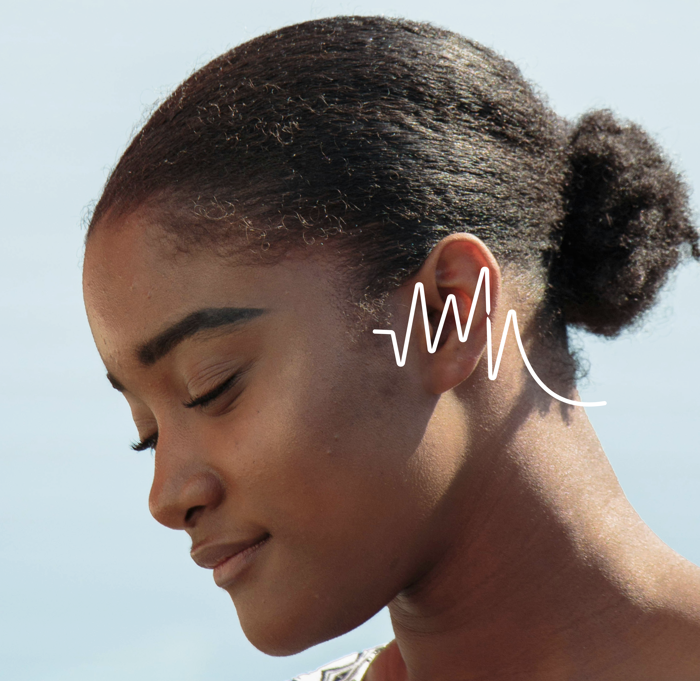
Other Blogs You Might Enjoy:
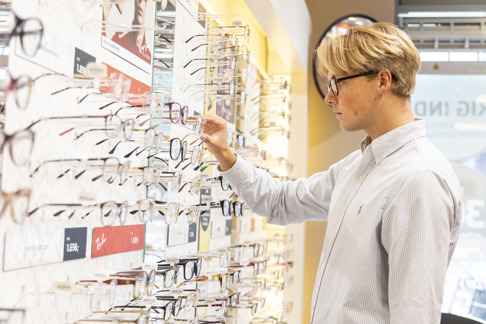
Exploring the Double Standard of Hearing Aids and Glasses
Why is there a stigma around wearing hearing aids, but not around wearing glasses? Eyeglasses were once a sign of age and impairment – remember the cruel old taunts of “four-eyes” – but are now seen as cool and trendy. Hearing aids should have a similar evolution: from stigmatizing burden to innovative, wearable tech.

Loud Music Contributes to Hearing Loss, Impacting 1 Billion Young People
Blasting your favorite songs on your headphones or attending live concerts could cause permanent hearing loss. In fact, loud music – and unsafe listening habits – may be contributing to hearing loss for more than one billion young people around the world.
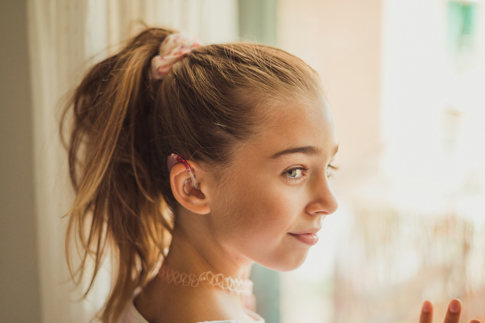
Unveiling the Age Bias & Adding Diversity in Hearing Aid Advertisements
Hearing aid advertisements often feature older, Caucasian people passively sitting in chairs while wearing their hearing aids, which feeds into negative stereotypes about hearing loss. To change the perception of hearing loss – and show that it happens to people of all ages, races, backgrounds, etc. – advertising and marketing efforts must become more inclusive. Read this blog for tips on how to accomplish this.





